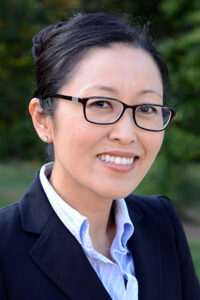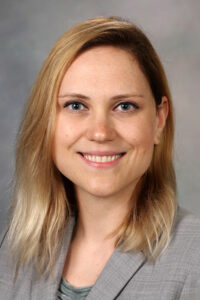
Perioperative management of sleep-related breathing disorders is of interest for pulmonologists and critical care specialists because of the known risk of associated morbidity and mortality, according to Christine H. Won, MD, MSc, Medical Director of Yale Centers for Sleep Medicine.
During the session, Perioperative Management of Sleep-Related Breathing Disorders on Wednesday at 3:30 pm CT, session co-chairs Dr. Won and Kara L. Dupuy-McCauley, MD, a pulmonologist at the Mayo Clinic, will lead a panel of experts in discussing the latest evidence-based guidelines for the evaluation and management of patients with sleep-related breathing disorders in the perioperative setting.
“Surgery is very common, even in the outpatient setting, with thousands of people presenting every year,” Dr. Dupuy-McCauley said. “We have learned through research that undiagnosed sleep-related breathing disorders, especially in the moderate to severe range, can lead to worse postoperative outcomes.”
These disorders include obstructive sleep apnea (OSA), central sleep apnea, and more, many of which may be undiagnosed at the time of surgery.
“It is important to be prepared and manage these patients appropriately in the postoperative setting,” Dr. Dupuy-McCauley said.
The session will include presentations spanning available evidence-based preoperative strategies for identifying and treating sleep-disordered breathing, as well as evidence regarding perioperative monitoring and management of these patients.

Frances Chung, MD, MBBS, Professor, Department of Anesthesiology and Pain Medicine, University of Toronto, will open the session with a discussion of preoperative assessment and postoperative outcomes of sleep-related breathing disorders. Dr. Chung, who developed the STOP-Bang questionnaire to screen for OSA in perioperative patients, will review what is known about OSA risk factors and review some of the available screening tools to identify patients at risk.
Drs. Won and Dupuy-McCauley are doing a joint presentation looking at outcomes data on the postoperative management of sleep-related breathing disorders and the use of noninvasive ventilation.
“Sleep apnea is heterogeneous with different phenotypes, and there will be nuances to their care,” Dr. Won said. “Noninvasive ventilation therapies these days are highly complicated and technologically sophisticated. We will discuss how to cater treatment to correlate with better outcomes.”
Mandeep Singh Rahi, MD, Assistant Professor of Anesthesiology at the University of Toronto, will present updates on the use of point of care ultrasound (POCUS) for OSA and other perioperative bedside monitoring strategies.
“POCUS is now pretty common in pulmonary and critical care practices and is used to diagnose and treat certain disorders in the ICU and outpatient settings,” Dr. Won said. “We are now using it as a screening and management tool to look at the upper airways to better manage those at risk for OSA.”
The final panelist, Jean Wong, MD, Associate Professor of Anesthesiology at University of Toronto, will discuss different OSA phenotypes and their importance.
“Within OSA, there is a wide variety of physiologic mechanisms as to why there is obstruction of the upper airways,” Dr. Dupuy-McCauley said. “If you look at different groups of people with OSA, you might discover opportunities for more personalized therapies.”
Drs. Won and Dupuy-McCauley hope that after attending the session, participants will appreciate how OSA and other sleep-related breathing disorders can be risk factors for perioperative complications and understand that early recognition and treatment may improve outcomes.
“I hope we can arm clinicians with some mitigation strategies to deal with patients at risk for poor outcomes,” Dr. Won said. “A lot of unknowns remain about sleep apnea in the surgical population, and I hope this session will inspire new care pathways or research in the area.”
NOW IN SESSION
CHEST 2021 • OCTOBER 17-20 • INFORM. INSPIRE. INNOVATE.
Immerse yourself in the experience of CHEST 2021! Your registration includes hundreds of sessions presented by our top faculty and featured speakers, live discussions with the experts, interactive gaming, and much more. Even better, you’ll have access to everything (including post-meeting bonus content) until October 2022!
Haven’t registered yet? It’s not too late. Register now for full access.





